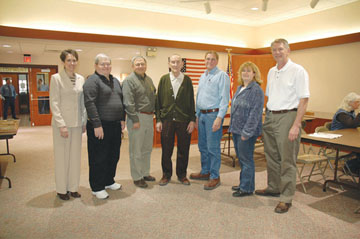
- SINCE 1931
- Cart 0
- Log In
Why Create an Account?
Access members-only information including complete utility directory, salary surveys, discussion forums, legislative updates and more.
Create an Account- Classifieds
- Forum
Local Policy: Councils and Commissions
 Governance in the 124 municipal electric utilities is nearly evenly split between city councils and utilities commissions, with city councils holding a slight numeric edge. The public nature of these governing bodies is why municipal utilities are often referred to as 'Public Power.'
Governance in the 124 municipal electric utilities is nearly evenly split between city councils and utilities commissions, with city councils holding a slight numeric edge. The public nature of these governing bodies is why municipal utilities are often referred to as 'Public Power.'
Minnesota law sets out four possible city organizational structures. These structures are Home Rule Charter (Chapter 410), Statutory City (Chapter 412) and Statutory City A or B. Any statutory city may, by ordinance, establish a public utilities commission with the powers and duties set forth in state law. Most municipal utility commissions exist in statutory and statutory A cities.
State law provides for three-member commissions in statutory cities. Many cities have obtained legislative approval to expand their commissions, generally to five members. A commission allows for a group of citizens to focus on the operation and future direction of the utility. Commissions in statutory cities are also required to keep a separate fund for each utility under their care.
Where municipal utilities are governed by a local utilities commission, commissioners are generally appointed by the city council. No more than one council member may serve on the commission. In two cities - Blue Earth and Austin - commissioners are elected.
Several city home rule charters also provide for utilities commissions, with powers and the number of commissioners set by charter. The amount of authority a commission wields may vary from place to place. Some commissions hold full authority to enter into contracts, hire and fix compensation, set rates and adopt service rules, among other powers. In other cities, commissions are strictly advisory.
Whether governed by a council or a commission, all municipals are subject to all the state’s laws regarding public bodies. Experience has shown that either form of governance can be successful.
The Capitol Letter

The Capitol Letter is written by our government relations staff and focuses on the latest legislative information of interest to municipal utilities. This newsletter is regularly emailed to subscribers. If you are an MMUA Regular Member and would like to receive this newsletter, contact us!
Tom Bovitz Memorial Scholarship
.jpg)
The MMUA Tom Bovitz Memorial Scholarship provides funding for post-secondary education. Winners must be customers, or dependents of customers, of MMUA-member electric or gas utilities. The essay contest takes place in the spring of the year.
Hometown Connections Helps MMUA Members
 Hometown Connections is an American Public Power Association subsidiary that provides products and services designed to help municipal utilities meet today's new and pressing industry challenges. MMUA is a Hometown Connections Affiliate.
Hometown Connections is an American Public Power Association subsidiary that provides products and services designed to help municipal utilities meet today's new and pressing industry challenges. MMUA is a Hometown Connections Affiliate.
For information on AMI, operations, cyber-security, business strategy, customer care, finance and workforce issues, click on the Hometown Connections logo!
Events
Sponsors

73% of our municipal
electric utilities have
successfully operated
for 100 years or more.
